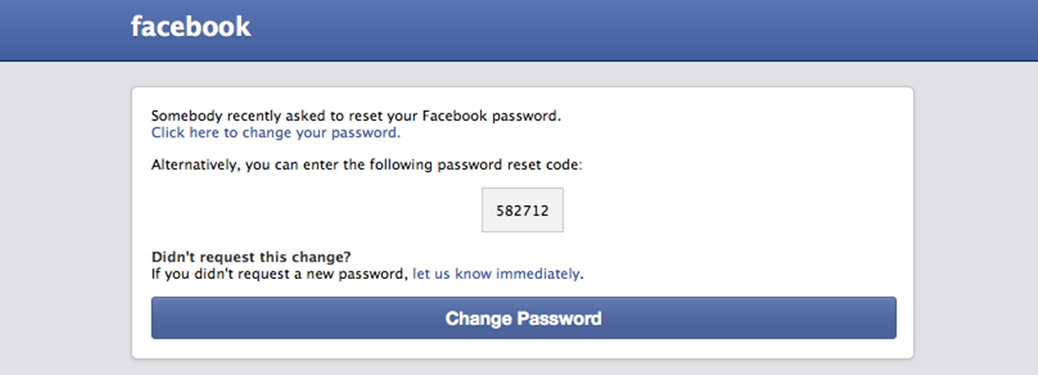Facebook Reset Scam
The Facebook reset requests arrived via email and text message: “Somebody asked to reset your Facebook password.†At first it was annoying; then it was worrisome – a possible scam/phishing target.
Facebook says that these alerts are sometimes triggered due to a person mistakenly entering the same name and then, when their password doesn’t work, the customer asks for a reset. That might be possible in certain cases, but just based on the constant messaging, this was clearly beyond a normal user mistake, and an imitator scam.

Let’s set aside the fact that although I have unlimited mobile data, many people don’t, and would end up paying for these unwanted texts. What’s more problematic is thinking about the many users who unsuspectingly fall for the request, click away and sign away their passwords.
Facebook says it will never ask you for your password, so if this happens to you, resist the urge to click. Any time you receive an urgent call to action in an email, be wary.  Don’t click on links contained in emails as a general rule. Instead, go to Facebook manually and look at the notifications. Needless to say, keep your anti-virus software up-to-date and use a password manager to keep your passwords safe and secure.
Facebook itself advocates the following steps:
- Use an up-to-date browser
- Use unique logins and passwords for each of the websites you use.
- Check to see that you’re logging in from a legitimate Facebook page with the facebook.com domain.
- Be cautious of any message, post or link you find on Facebook that looks suspicious or requires an additional login.
IRS and Other Scary Calls
You might imagine getting a voice message from the IRS wouldn’t be good news. And it’s not! This is a current scam making the rounds: Someone claiming to be an officer of the Internal Revenue Office leaves a message for you or your legal representative to call their hotline regarding an extremely time sensitive issue – before they take legal action. I was immediately suspicious: Would the IRS really leave me a phone message if there were an issue? The answer is “No.â€
What’s really scary is that the IRS reported in August 2014 it had received 90,000 complaints and identified approximately 1,100 people who have fallen victim, given up credit card numbers, etc. and lost an estimated $5 million from these scams.  You can learn more about the same on IRS. gov.
Fast forward to another cell scam: persistent calls received from an unknown number in the local area code. No voicemails were left. But after the calling persisted several times a day for a few days, you become curious as to who was calling. When I rang the number I got a “This number has been disconnected†message…
Lots of research later and it’s unclear as to whether this is just some weird harassment or part of the “One-ring†cell phone scam that the FTC has issued warnings about. In the latter scenario, scammers are using auto-dialers to call cell phone numbers across the country. They let the phone ring once and hang up — hoping you’ll call back, either because you believe a legitimate call was cut off, or you will be curious about who called. If you do, chances are you’ll hear something like, “Hello. You’ve reached the operator, please hold.†While waiting, you rack up some hefty charges — a per-minute charge on top of an international rate. The FTC notes: There’s no danger in getting the call: the danger is in calling back and racking up a whopping bill. If you’re tempted to call back, try checking the number first through online. Go here to learn more.
As for persistent calls, you can block them. You can block calls on both Android and iOS phones. On an iPhone look on your list of recent calls, just click the “i” in the circle to the right of the number. It will open an info tab, just scroll to the bottom and click block number. You should also report the number to your service provide (AT&T, Verizon, etc.) to get them blocked there.Halloween comes and goes, but scary scams will continue, and it requires a higher level of awareness from all of us! Check out AVG’s Facebook page for ongoing alerts and simple tips to help your friends be more safe online!
![]()
![]()
